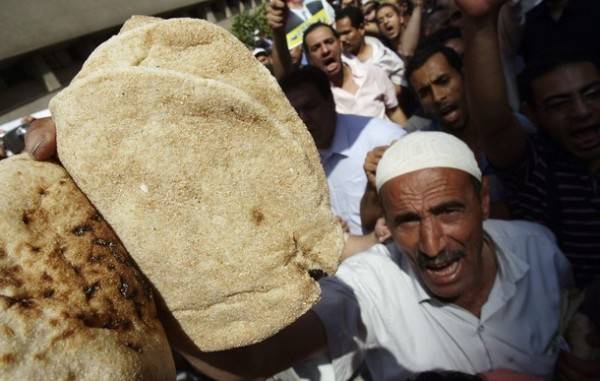
Although Egypt’s electoral process has been dominating the headlines this week, it’s important to remain focused on deteriorating economic conditions as the political transition progresses. Egypt’s economic situation is dire, reflecting continued depletion of international reserves, estimated at less than US$20 billion – barely enough to cover 4 months of imports. The continued depletion of international reserves increases depreciation pressures on the Egyptian pound.
Immediate priorities for the interim government should be focused on securing a cushion to supplement the international reserves position. One possible course is to secure a loan from international institutions at a concessional rate and with a long grace period to ease pressures on the pound and avail resources to accommodate higher levels of borrowing needed to finance government spending. More importantly, a loan from the IMF or World Bank would help catalyze additional concessional funds and boost investors’ confidence.
On the domestic front, Egypt’s new cabinet and the next parliament will need to focus on restoring stability, both on the political and security fronts to revive natural sources of foreign income, primarily tourism and foreign direct investment.
As the political process continues to unfold, priorities for the new government should be focused on reducing pressures on the budget and reforming public finances. This requires pressing ahead with necessary reforms, such as rationalizing the system of fuel subsidies and mobilizing additional revenues, to create fiscal space to accommodate growing social demands and stimulating the economy.
Efforts to stimulate the economy should be focused on mobilizing support to small and medium-sized enterprises (SMEs). Beneficiaries of this measure would be the "necessity entrepreneurs" who are eager to resume or start their business activity to get out of unemployment and earn their living. SMEs account for 75 percent of the economy in Egypt and have suffered long before the revolution from lack of access to credit, and many institutional hurdles that have hampered their activity and made it very difficult for them to survive in a deteriorating business environment that has suffered severe setbacks.
Availing credit in support of SMEs, coupled with institutional support, including production subsidies and tax incentives if necessary, will help grow jobs and stimulate the economy. Stimulating economic activity will help revive consumption and increase the prospects for investment, assuming progress is maintained on the political and security fronts.
In addition, to short-term cash assistance and concessional lending from international institutions, it is important to mobilize pledges that have been made by the international community in support of the political transformation. This requires an action plan from the Egyptian side to match potential financing with specific projects that could help mobilize activity, create jobs, address social concerns and supplement international reserves.
Over the medium-term, economic partnerships in the form of trade and investment relations will help sustain economic development and satisfy the demands for inclusive growth that started the revolution. To that end, a gradual approach of anchoring necessary reforms in strategic sectors that could unleash the potential of bilateral trade and investments will help increase mutual benefits of economic partnership and mobilize political support on both sides of the process towards a broader form of integration and/or free trade agreement.
Investing in stabilizing economies in transition will help support the democratic transformation and unleash their growth potential to address the social concerns of growing young population and reap the benefits of long-lasting growth in the form of higher standards of living and greater integration in the global economy.
Magda Kandil is the executive director of the Egyptian Center for Economic Studies. Previously, she worked with the International Monetary Fund where she held the positions of advisor to the executive director and senior economist.
Photo Credit: Reuters
Image: 1280138165003542100.jpg
